Buying vs renting before moving – pros and cons

Choosing where to stay before arriving in Spain is a must. It is part of the preparations before the move, but would it be better to stay in a hotel, vacation rental, long term rental or to buy a home before arriving and move there straight away, as so many people choose to do? Let’s examine these options up close so that you are better informed before making big decisions:
Option 1 – Buying property before moving
Buying a house before moving is a pretty definitive decision. One must know the area very well and be sure that the place is suitable for them, as the taxes involved in this transaction add about 10% to the original price, so reselling shortly after the buy would probably be at a loss. Non-residents also pay higher taxes when selling and higher interests on mortgage, compared to residents – which means that, if you intend to become a resident soon, it is worth waiting before (re)selling a place.
On top of it all, Spanish-property owners must pay taxes on the property in Spain regardless of where they live, adding an extra complication when filling income taxes. This is due even if the property stays unoccupied and implies that if you buy a place the year before your actual move, when filling taxes for that year you would also need to fill a declaration to Spain. You would probably already need a gestor before even moving. You would also need to get a NIE (in the Spanish Consulate or Embassy that covers the area where you currently live) before concluding the purchase.
If these weren’t enough tribulations, there is the worst part of all: the risk of okupas (squatters), a huge worry for property owners in Spain, as removing a squatter can take years through the Spanish legal system. Therefore, if the goal of buying a house before moving is to make things easy after the arrival, it is probably not worth it, as buying when in Spain is much easier.
On the other hand, having a home straight away would make the padrón a lot easier. If this is your choice, interview a few real state agents before your move and chose one that is commited to help by visiting the properties with you online to show you the spaces of the property. Find also a lawyer, independent of the real state agent, to check that the property’s documents are in order – it is not hard, Spain has many lawyers that specialize in real state property, and their check up is affordable (I paid only 50 euros!)
If you already have friends in the area, talk to them about the location of your future place, and check how hilly is the area before commiting. Take a look at our page about the property buying process, so you know what to expect on each step of the way and ask the help of either friends or the real estate agent to install a good security system in your new house.
Option 2 – Renting before moving
Renting before moving to Spain would be the ideal choice for many. It saves on hotel / short-time rental, provides a degree of mobility – as one can decide to go try the life elsewhere after a while – and makes getting the Padrón quite a bit easier, if before signing the contract the landlord agrees that they would provide this document.
The Padrón is a important document, particularly if you want to have access to public healthcare or to enroll your kids in the public school, as this document is required for both. In some situations, Padrón is also a requirement for residence. If this doesn’t apply to you, you can rent a place for a few months and let the Padrón for latter. It is mandatory to enroll in the Padrón within 90 days of either buying a place or signing a long term rental contract; before you do either, you won’t be at wrong by not having the Padrón.
It is just borderline impossible to get a rental agreement ahead though. I tried. Many people on social media tried as well, but it turns out that landlords refrain from renting to people that cannot prove a stable income in Spain, and the rare few that accept do not agree to give the padrón. Once again, the okupas situation play a role here.
There are two legal ways to rent in Spain: the short-term (from days up to a few months) and the long-term (from one year). While long-term rentals scare landlords because removing a tenant that stops to pay could take years, the short-term legislation provides for a fast resolution when a squatter is detected. Therefore, landlords are more willing to rent the short way; but they are not willing to give the Padrón for a short-term renter, because this would be an argument for the renter to say that this rent was, indeed, long-term, not short.
If the justice agrees that the landlord was disguising a long-term contract as a short-term contract, the landlord would be in trouble. For this reason, if one is willing to rent for less than one year, the landlord will most likely refuse to give the Padrón. There are exceptions, though: in small cities inland, where the risk of okupas is small and the offer of places largely exceed the demand, landlords are probably more flexible.
If you don’t intend (or if you can wait) to either use the public healthcare system, enroll kids in the public school or get a residence permit, the short term rental without the Padrón could be your way to go. In this case, check the vacation rental below, as it is pretty much a synonym of short-term rental.
Related posts:
Okupas, second properties and rentals in Spain
The truth about finding long term rent in Spain
Our unusual perspective on renting vs buying after arriving
Option 3 – Staying in a hotel
Staying in a hotel is a realistic option, except for the price. It is possible to negotiate ahead a good discount for a lon-term stay of about a few months, though. If you are coming alone or just with a partner, perhaps this would be a good way to go.
Even better if you can move in the winter months, out of season, so you can get lower prices. This would give you some time to prepare your documents and to explore the area and visit as many places as you would like before commiting to either a long-term rent or buying a house.
Option 4 – Staying in a vacation rental
Staying in a vacation rental is the fourth option I see, and the one I did. We stayed in two vacation apartments, one in Benalmádena (for the first two weeks) and then one in Torremolinos (for two and a half months). It was a bit expensive, though less than it would have been in a hotel, and with more space as well. On top of that, the fact that the vacation rentals had kitchens made it cheaper than having to eat out everyday, as when staying in a hotel.
Another advantage is the flexibility this option gives in term of schedule. We never know for sure how long it is going to take for the conclusion of a home purchase or a rental agreement, so staying on a vacation rental prevented that we would pay months of rent more than necessary. We actually had to enlarge our second vacational rental stay, because of the delay in buying our home, and the owners of the rental accomodated our request. The fact that it all happened during the winter was probably helpful, as if it were summer, the place would probably already be rented.
The advantage of choosing a definitive place while already permanently in Spain is that it is usually easier to negotiate a rental or a purchase in person, even better after one can already provide some of the local documentation and after becoming a resident. We also had a few months to go around seeing properties, discussing terms and ended up buying as residents.
This decision, therefore, will largely depend on your personal situation – your choice of where to live and the needs of your family. You may try renting before arriving – who knows, maybe you are one of the few to be lucky on that – or you may be able to come to Spain and negotiate a great deal on a property during vacations. Or you can stay a few months “on vacation” while working hard on finding a place from inside. Let me know how you did it in the comments!


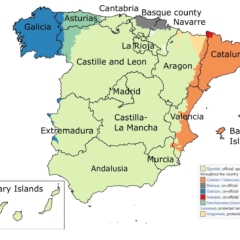

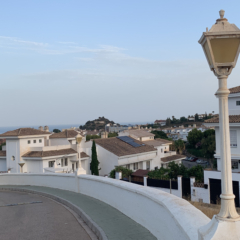
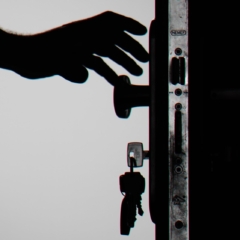
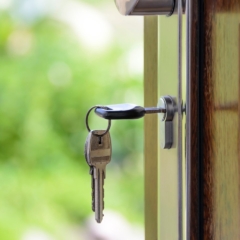
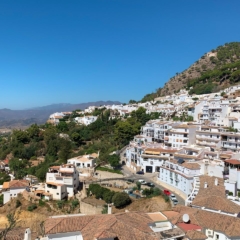

Excellent source of information, with lots of useful details!
I did not know that vacation rental would be that flexible. What would be the general length/frequency you can do a renewal? Can you enlarge your stay let’s say in every 2 weeks? Thank you
Hello Tamas,
Thank you for you comment!
I think we could extend our stay because it was winter, so probably there were no other people booked for that time. The idea of rent for a bit and then go extending sounds good, but 1) some places offer discounts for month-long stays and rent for smaller bits would not make use of that advantage; and 2) the possibility of extending the stay will depend on whether someone else book a stay there for the following period or not.
As for how many times one can renew, as far as I know there is no such a limit in Spain, but check with a vacation rental owner to be sure (Facebook has groups of them)!
Excellent, that makes sense. Thank you!